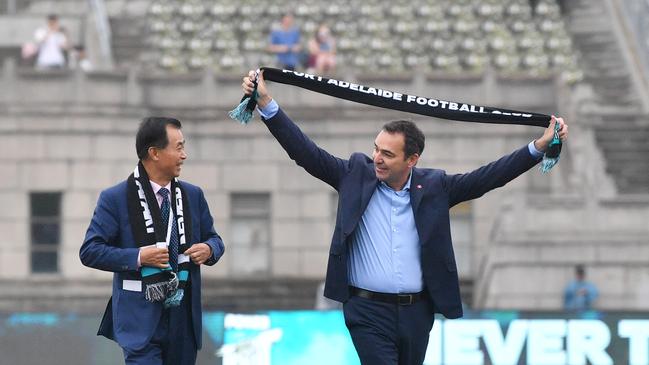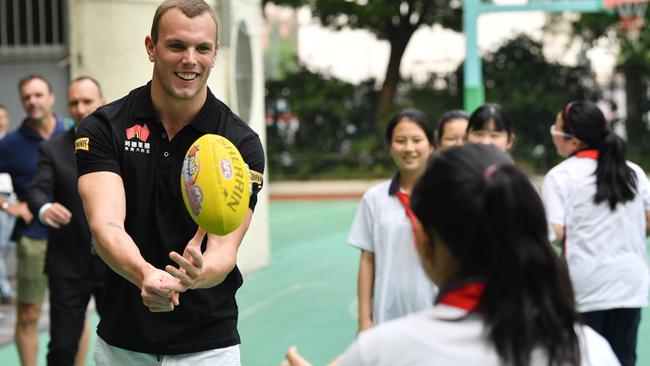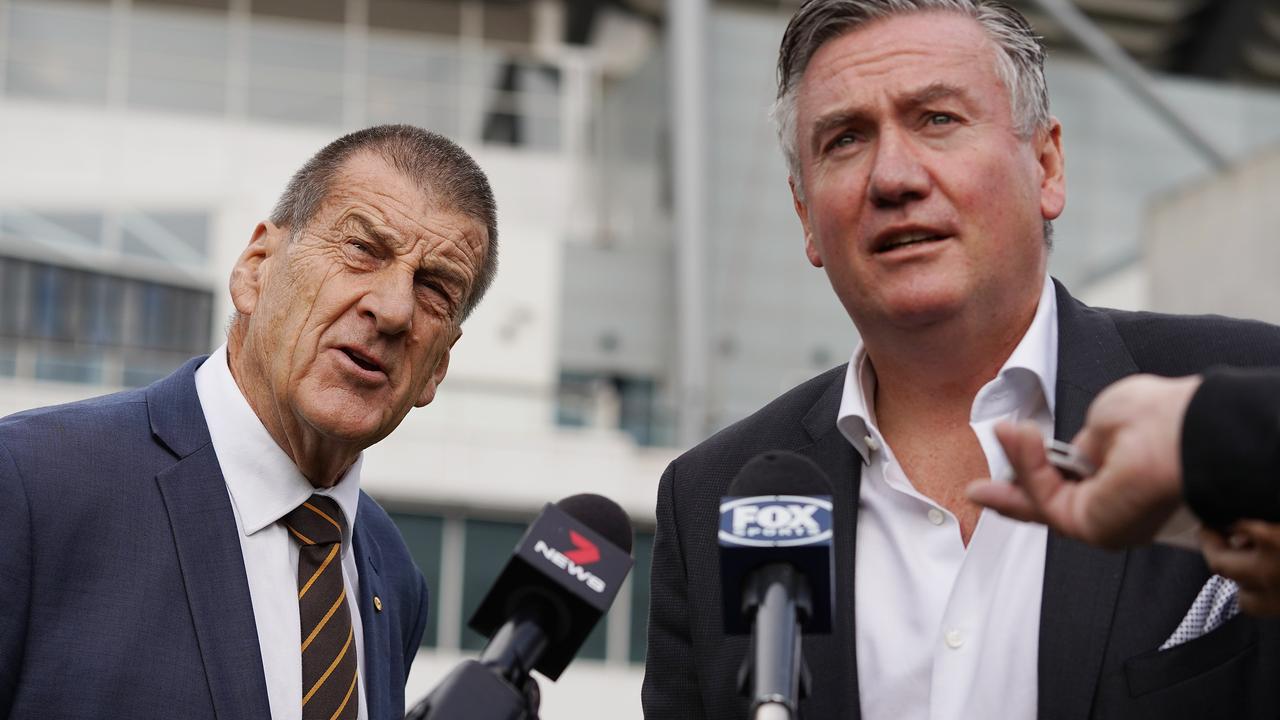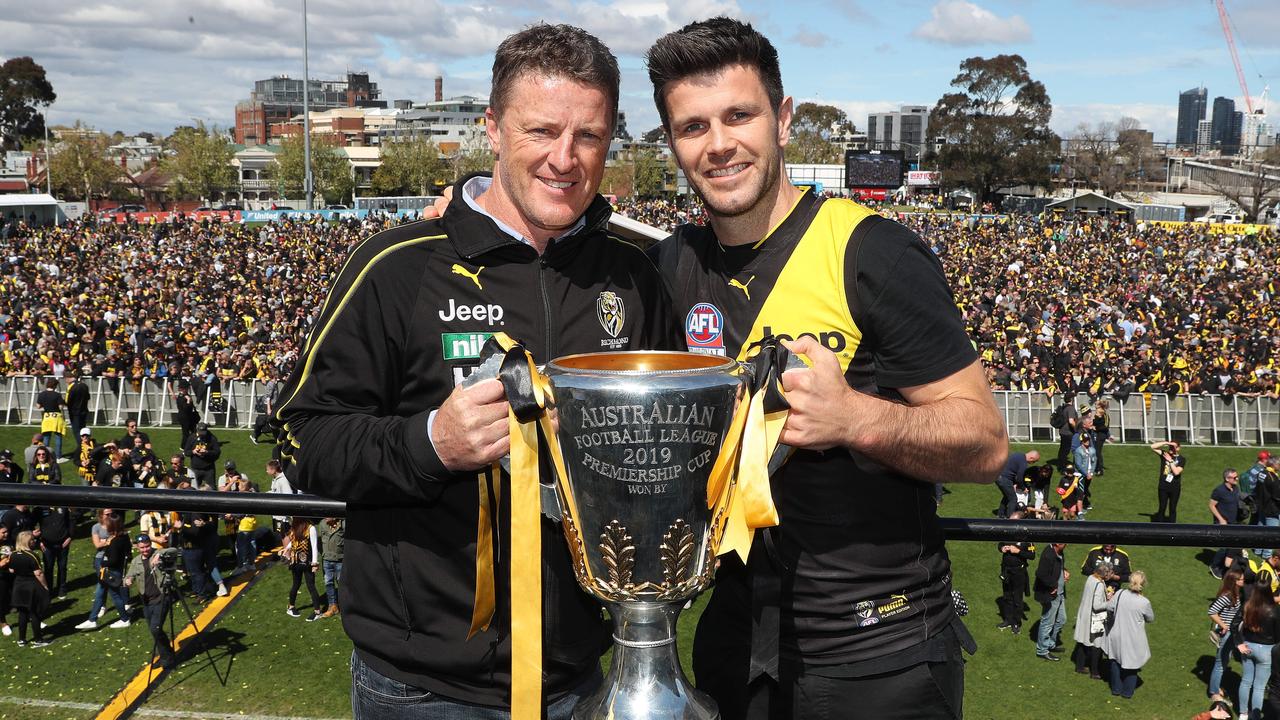Michelangelo Rucci: Why soccer fans’ reaction to Australian football expansion is an off-side call
AUSTRALIAN football has created a national league — and an international platform. Soccer fans’ reactions to Port Adelaide’s China Strategy are reflection of an old sore.

Michelangelo Rucci
Don't miss out on the headlines from Michelangelo Rucci. Followed categories will be added to My News.
- Soft Power play: The heavyweight backing Port’s China strategy
- Power’s night vision for China
- Adelaide Oval to host State of Origin
SOUTH Australian Premier Steve Marshall loves “sports diplomacy” — the term the Port Adelaide Football Club uses for bringing together Australian and Chinese businesses with its “China Strategy”.
And as Marshall enthusiastically waved the Port Adelaide scarf on Jiangwan Stadium — as the Power played its second AFL game in Shanghai — he was keen to explore what sport could do for SA trade and tourism from China.
And not just AFL.
“Soccer too,” he told the Sunday Mail.
Like AFL great Kevin Sheedy, who has always marvelled at how Australia can find room for four football codes (Australian football, soccer, rugby and rugby league), Marshall is not holding a narrow view of what sport could do for SA’s economy.
At a Shanghai school on Friday — when Port Adelaide called on Olympic swimming champion Kyle Chalmers to put his image to the Power’s football clinics in China — Marshall was keen to learn from the teachers just how curious the students were on coming to Australia.
Marshall is keen to add to the 15,365 international students in Adelaide delivering more than $500 million to the state economy. And, as many politicians before him, Marshall is well aware of the power of sport in promoting a state agenda …
“Soccer too,” he said in Shanghai.
Former Adelaide United chairman Greg Griffin might now wish he had held on to his A-League licence a little longer …

One of the inevitable fallouts of the AFL’s commitment to an international agenda is the old Australian football-soccer debate. Despite all the hopes that have built up (and fallen) across the past 50 years, soccer still has not overtaken Australian football here — even with the Socceroos’ making repetitive qualifications to the World Cup finals.
And now a raw nerve has been hit with the AFL having an international agenda.
If, as Sheedy notes Australia with 24 million people and an economy that is one-fourth of that in China, cannot support four football codes, surely there is room for more than just soccer in a nation with 1.4 billion?

The barbs being thrown from soccer enthusiasts about the crowd figure of 10,668 at Jiangwan Stadium also were inevitable. But if Chinese soccer clubs Shanghai Shenhuu played Nantong Zhiyun at Hindmarsh Stadium next week, how many would turn up?
There is a good reason why rugby league is bringing its code to Adelaide Oval with NRL games and the grand State-of-Origin battle between NSW and Queensland in 2020. Sports are no longer challenged to grow their membership numbers but also their profile beyond “traditional” markets to enhance their appeal to vital business interests.
Where would soccer be if a group of English sailors had not taken their round balls — cricket and soccer balls — on those ships that docked at Genoa in Italy in the 1890s? A great game took to the world.
And it surely is big enough for Australia’s greatest game to prove its worth on the world stage . not just as a sport, but also for those trade and tourism missions Marshall wants to boost for SA.


